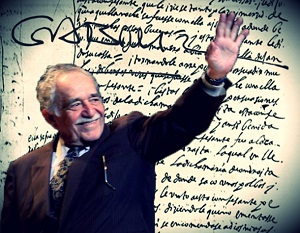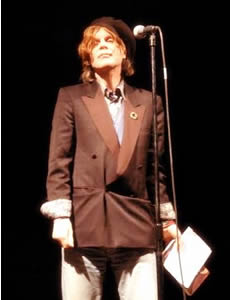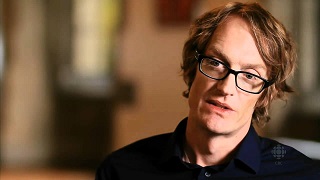De Colombiaanse schrijver Gabriel García Márquez werd op 6 maart 1928 in de kustplaats Aracataca geboren. Zie ook alle tags voor Gabriel García Márquez op dit blog.
Uit: Honderd jaar eenzaamheid (Vertaald door C.A.G. van den Broek)
“Ze gaf opdracht tot de bouw van een salon voor de visite, een gerieflijker en koeler vertrek voor dagelijks gebruik, een eetzaal voor een tafel met twaalf plaatsen waaraan de familie met twaalf gasten kon aanzitten, negen slaapkamers met ramen die uitkwamen op de patio en een grote waranda die tegen de hitte van het middaguur beschermd moest worden door een rozentuin en voorzien moest zijn van een balustrade waarop potten met varens en vazen met begonia’s konden worden geplaatst.”
(…)
“En ze hoefde ook niet te kunnen kijken om te beseffen dat de bloemperken, die tijdens de eerste verbouwing met zoveel toewijding waren verzorgd, door de regen vernietigd en door Aureliano Segundo’s graafwerk omgespit waren en dat de wanden en de cementen vloeren vol scheuren zaten, de meubels wankel en verschoten waren, de deuren uit hun hengsels hingen en de familie bedreigd werd door een gelaten, zwartgallige stemming die in haar tijd ondenkbaar zou zijn geweest.”
(…)
“Toen sloeg hij nog een stukje over om op de voorspellingen vooruit te lopen en de datum en de omstandigheden van zijn dood op te zoeken. Maar nog voordat hij bij het laatste vers was gekomen had hij al begrepen dat hij deze kamer nooit meer zou verlaten, want het stond geschreven dat de stad van de spiegels (of spiegelingen) door de wind weggevaagd en uit de herinnering der mensen weggewist zou worden zodra Aureliano Babilonia de perkamenten tot het einde toe ontcijferd had – en dat alles, wat daarin beschreven stond, voor altijd en eeuwig onherhaalbaar was, omdat de geslachten, die gedoemd zijn tot honderd jaar eenzaamheid, geen tweede kans krijgen op aarde.”

Gabriel García Márquez (6 maart 1928 – 17 april 2014)


